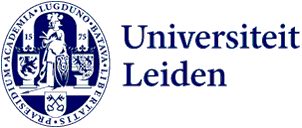
Dutch Higher Education Award 2022: second place for The Learning Mindset
The Leiden University College (LUC) education team behind The Learning Mindset (TLM) has received 800,000 euro’s during the Dutch Higher Education Award Ceremony 2022. The LUC team was second behind Universteit Twente. The prize was awarded during the annual Comenius Festival of the Comenius Network. The Dutch Higher Education Award is a recognition for innovation in education at universities and colleges.
The team of The Learning Mindset has developed a toolkit that integrates 'journaling' (a form of structured) written reflection such as in a diary) into the education provided by Leiden University College. With the toolkit, students learn to control their own learning process by actively and structurally reflecting. ‘TLM wants to help students approach learning at university like they would learning their favourite sport or instrument: by actively figuring out how to get better, practicing, getting feedback, and setting new goals. We aim to let students leave university with a habit of seeking learning like this – with what we call a ‘learning mindset’.

What does the awarding of this prize mean to the TLM team?
TLM has been co-lead by Caroline Archambault and David Ehrhardt: ‘As a team, we feel that this award has already given a lot. The nomination process has pushed us to focus and get to the heart of our innovation. It tested our commitments and at several points exhausted us. But it also fuell our passion for the project and strengthened our team. The prize itself will mostly give us the time and space to build and scale TLM in a way that we believe in. It means a lot to LUC because it shows how conducive the college is to innovation – a place where students, teachers, support staff help each other incubate ideas, test them, and find things that work.’
Student team member Daniela van den Brink: ‘The prize indicates that people actually care about making learning more fulfilling, fun and really empowering us to take charge of our own learning paths.’
Why do you think this project was nominated. Why did it stand out among all the candidates? What are its strengths?
Archambault and Ehrhardt: ‘We think for at least two reasons. First, our process of innovation. We have been a real learning team engaged in co-creation. We are all on the ground as students, teachers, advisors, designers. We've been looking and listening for new ideas and experimenting to figure out what works and doesn't. Second, our journaling-based approach provides a simple practical way to train an elusive but superimportant skill: learning how to learn better. It can be used by all kinds of students, in any program or discipline and at any level. Teachers, advisors, administrators can also easily make use of our tools to help students.’
Team member Esli Verheggen adds: ‘It connects so well to where education is moving to: more bottom-up, decentralized, and personalized.’
What does the future of The Learning Mindset look like? Are there for example plans to expand it and can it be applied broadly?
Archambault and Ehrhardt: ‘We developed our method and tools in LUC but now are excited to take it to new educational settings. We will start with different parts of Leiden University (for example other faculties, student support systems) but expect to be able to roll it out, in time, beyond Leiden and The Netherlands.’
Team member Bing Tang: ‘It has been really exciting to develop this partnership between LUC and the Centre for Innovation and there are many, many more partnerships to be made within the University.’
The money should be spent on renewing or improving higher education. Do you already know what you are going to do with 800,000 euro's??
Archambault and Ehrhardt: ‘We would like to spend the money on scaling up, which means to us co-creating tools with new partners in new settings. We would like to establish our own innovation lab: a co-creation space that brings together interested partners to engage with the question of how to help students be active learners and to design, experiment, implement and study innovative methods. So TLM warmly welcomes all those who are interested in working with us: please get in touch!’
Summary of TLM
Mission explained by Caroline Archambault and David Ehrhardt: TLM wants to help students approach learning at university like they would learning their favourite sport or instrument: by actively figuring out how to get better, practicing, getting feedback, and setting new goals. We aim to let students leave university with a habit of seeking learning like this – with what we call a ‘learning mindset.’ To help students develop this approach to learning, we get them to journal. We love this kind of reflective writing because it encourages students to process, self-reflect, and keep track of what they're learning. And besides this, journaling is also a really useful habit for remembering what they've learnt, and for dealing with stress and other mental health issues.
How do we get students to journal?
Together with students, teachers, many others, we co-create journaling guides (that are a bit like workbooks) and other educational tools. They are easy to get into and follow, they’re fun and relatable to students and they have thought-provoking prompts and exercises for them to do. For example, we have a journaling guide that helps new students transition to university life and another that helps them start their day. We have course guides that get students to set their own goals around assignments. We also have guides focused on learning specific skills (like public speaking or teamwork). We’ve developed, tried and tested these at LUC (which offers quite a diverse educational setting) and we’ve found that it’s really versatile - students anywhere (in any program/any discipline/any level) can use our tools to train and develop their learning mindset.
